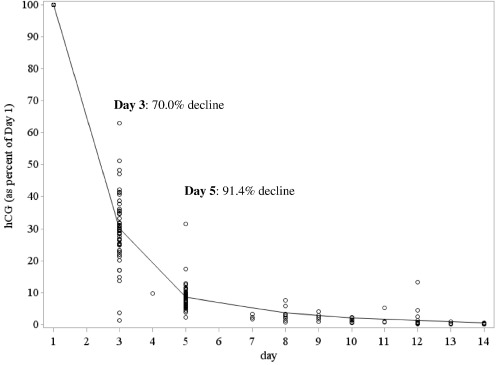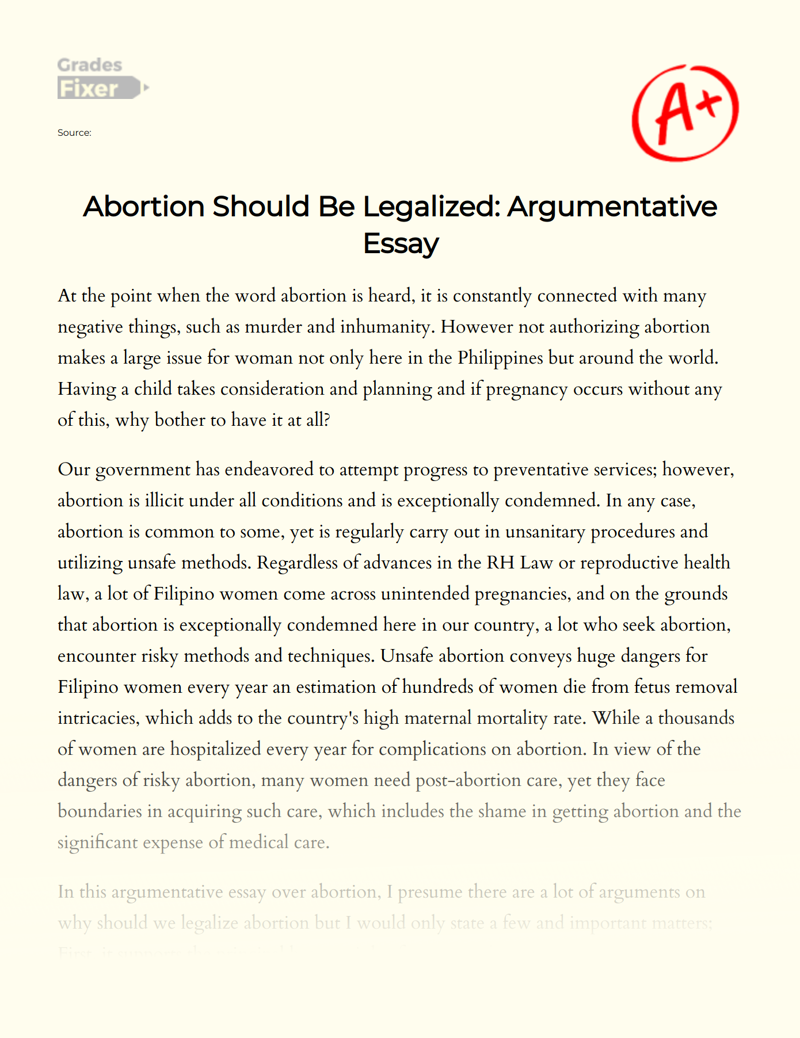Bleeding for a month after an abortion can be a cause for concern and may require medical attention. After an abortion, it is normal to experience bleeding for a certain period of time, but if the bleeding persists for a month or longer, it is important to consult with a healthcare provider to determine the underlying cause and receive appropriate treatment.
It is vital to address prolonged bleeding to avoid any potential complications. Remember to seek professional medical advice for individual cases, as everyone’s circumstances and experiences may differ. Experiencing bleeding for an extended period after an abortion can be worrisome and alarming.
While bleeding is a common occurrence following an abortion, it typically lasts for a few days to a few weeks. However, if the blood flow persists for a month or more, it may indicate an underlying issue that requires medical attention. It is crucial not to overlook or underestimate prolonged bleeding as it could potentially lead to complications if left unaddressed. Consequently, consulting with a healthcare provider is essential to determine the cause and receive the appropriate treatment. As each individual’s situation may vary, seeking professional advice is highly recommended to ensure proper care and well-being.

Credit: www.austinwomenshealth.com
Possible Causes
Bleeding for a Month After Abortion may be attributed to hormonal imbalances stemming from the body’s adjustment to the termination of pregnancy. This adjustment can lead to prolonged bleeding that lasts for several weeks. Another possible cause is an incomplete abortion, where some fetal or placental tissue remains in the uterus, causing persistent bleeding. Seeking medical attention is crucial to address these issues and prevent further complications.
Hormonal Imbalances
Experiencing bleeding for a month after an abortion can be worrisome, but it is essential to understand that it may be due to hormonal imbalances. After an abortion, changes in hormone levels are expected. These changes can disrupt the normal menstrual cycle, leading to prolonged bleeding. It is important to note that every woman’s body is unique, and the healing process can vary.
During an abortion, the body goes through a significant hormonal shift. This hormonal imbalance can result in a prolonged healing time, causing bleeding to last for an extended period. The body needs time to readjust and restore hormonal balance, which can influence the duration of bleeding.
It is advisable to consult with a healthcare professional if you experience consistent heavy bleeding or if you have concerns about the duration of bleeding after an abortion. They will be able to provide appropriate guidance tailored to your specific situation and ensure your well-being.
Incomplete Abortion
Experiencing bleeding for a prolonged period after an abortion can be concerning. One possible reason for this is an incomplete abortion, which occurs when some tissue from the pregnancy remains in the uterus. Retained tissue can lead to continued bleeding and may require further medical intervention to prevent complications. Infection is another potential issue following an abortion. Symptoms such as fever, pelvic pain, and foul-smelling discharge may indicate an infection and should be promptly evaluated by a healthcare professional. Recognizing the signs of infection and understanding the importance of seeking medical attention is crucial. Proper post-abortion care, including following any prescribed medication regimen and attending follow-up appointments, is essential for preventing complications and ensuring overall well-being. If you are experiencing prolonged bleeding or any concerning symptoms after an abortion, it is important to reach out to your healthcare provider for guidance and support.

Credit: healthnews.com
Signs And Symptoms
Excessive Bleeding: After undergoing an abortion, experiencing heavy bleeding for more than a month can be concerning and requires immediate medical attention. It is essential to monitor the amount of bleeding and seek help if it is unusually heavy.
Foul Odor: If there is a persistent foul odor accompanied by the bleeding, it could indicate an infection, necessitating prompt medical intervention to avoid further complications.
Cramping: Persistent and severe cramping after an abortion, especially if it worsens over time, may signify an underlying issue that needs to be addressed by a healthcare professional.
Fever: Developing a fever after an abortion could be a sign of infection, and it is crucial to consult a doctor to prevent any potential health risks.
When To Seek Medical Help
If you experience persistent heavy bleeding for a month after an abortion, it is important to seek medical help. Heavy bleeding may indicate an underlying issue that needs to be addressed by a healthcare professional. It is not normal to bleed heavily for such an extended period of time after an abortion, and it could be a sign of incomplete abortion or complications.
Experiencing severe pain for a month after an abortion is another reason to seek medical help. While some cramping and discomfort can be expected, severe pain could be a sign of infection or other complications. If the pain is interfering with your daily activities or is unbearable, it is important to consult with a healthcare provider.
Watch out for signs of infection after an abortion. If you notice persistent fever, foul-smelling vaginal discharge, or increasing pain, it may be an indication of an infection. Seeking prompt medical attention is crucial to prevent further complications and ensure your well-being.

Credit: hersmartchoice.com
Treatment And Care
Bleeding for a month after an abortion can be concerning, but it is important to remember that every person’s body is different and may respond differently to the procedure. It is crucial to seek medical evaluation to determine the cause of the prolonged bleeding and ensure proper treatment and care.
During the medical evaluation, your healthcare provider will conduct a thorough examination and may order tests to identify any underlying issues. Based on the evaluation, they may recommend medication to help regulate the bleeding or address any complications.
In some cases, surgical intervention may be necessary if the bleeding persists or if there are other complications. Your healthcare provider will discuss the available options and help you make an informed decision based on your specific circumstances.
Frequently Asked Questions For Bleeding For A Month After Abortion
How Long Does Bleeding Last After Abortion?
The duration of bleeding after an abortion can vary, but it usually lasts for about one to two weeks. Sometimes, it may continue for up to four weeks, but if bleeding becomes heavy or lasts longer than expected, it’s important to consult a healthcare professional.
Is It Normal To Bleed Heavily After An Abortion?
While some bleeding is normal after an abortion, heavy bleeding can be a cause for concern. If you are soaking through more than one pad per hour for several hours, experiencing severe pain, or passing large blood clots, it’s essential to seek medical attention immediately.
What Causes Prolonged Bleeding After An Abortion?
Several factors can contribute to prolonged bleeding after an abortion. These may include retained pregnancy tissue, infection, or an underlying medical condition. If you experience bleeding that lasts longer than two weeks or becomes increasingly heavy, it’s important to consult a healthcare professional for an evaluation.
Conclusion
Experiencing prolonged bleeding after an abortion can be concerning. It’s important to seek medical advice and follow up with healthcare providers to ensure your well-being. It’s also crucial to take care of your physical and emotional health during this recovery period.
Remember, you are not alone, and support is available.




